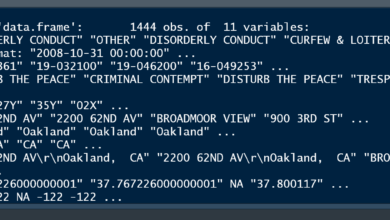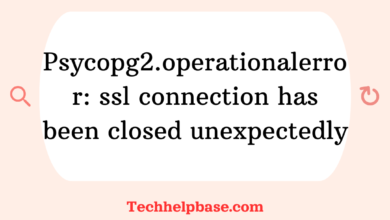Understanding the Issue: [error: could not build wheels for cffi, which is required to install pyproject.toml-based projects]

If you’re working with Python projects, you might have come across the error message “error: could not build wheels for cffi, which is required to install pyproject.toml-based projects.” This issue typically arises during the installation of certain packages that rely on a pyproject.toml file, a modern project configuration format for Python. The error can be frustrating, especially if you are unfamiliar with the inner workings of Python package management. In this article, we’ll break down what this error means, the potential causes, and practical steps to resolve it.
What Is the Error and Why Does It Happen?
The error essentially points to a failure to build wheels for the cffi package. A wheel is a distribution format in Python that simplifies the installation process by precompiling the package, allowing for faster and more reliable installs. When Python attempts to build a wheel but fails, it defaults to building the package from the source, which can be more complicated and prone to errors, especially if your system lacks the necessary tools.
The error often manifests with a message like this:
ERROR: Could not build wheels for cffi, which is required to install pyproject.toml-based projects
Here’s a breakdown of the common causes of this issue:
- Missing Build Tools: The most frequent cause is the absence of essential build tools such as
gcc,make, orlibffi-devon Linux systems. - Outdated Python or Pip Version: Older versions of Python or pip may struggle with newer packaging formats.
- Incorrect Python Virtual Environment Configuration: Misconfigured environments can fail to locate the correct build dependencies.
- Compatibility Issues with the cffi Package: The
cffipackage may not be compatible with certain Python versions or operating systems.
Real-World Examples of the Error
Let’s take a look at how this error has impacted users in various environments, based on feedback from online forums and communities.
- Ubuntu and Debian Users: Many Linux users have reported that installing the
cffipackage fails becauselibffi-devis not installed by default. Without this development library, buildingcffifrom the source becomes impossible. - Windows Users: Windows users often encounter this error due to missing C++ build tools, which are required to compile certain Python packages. If the system doesn’t have these tools installed, the wheel build for
cffifails. - macOS Users: On macOS, the issue commonly arises when the system’s Xcode tools or Homebrew dependencies are outdated or improperly installed.
In all these cases, the error “error: could not build wheels for cffi, which is required to install pyproject.toml-based projects” prevents users from proceeding with their installations, disrupting workflows and causing frustration.
Step-by-Step Solutions
Now that we understand what causes this error, let’s go over a few solutions that should help resolve the issue.
1. Install the Required Build Tools
The most straightforward solution is to ensure that your system has the necessary tools to build the package from source. The specific tools you need will depend on your operating system.
- Linux (Ubuntu/Debian):
- Run the following commands to install
libffi-devand other essential packages:sudo apt update sudo apt install libffi-dev build-essential
- Run the following commands to install
- macOS:
- Install Xcode command-line tools:
xcode-select --install - You may also need to install
libffivia Homebrew:brew install libffi
- Install Xcode command-line tools:
- Windows:
- Install Microsoft’s C++ Build Tools. You can download them from the Microsoft website. Make sure to include the “Desktop development with C++” package during installation.
2. Upgrade Python, Pip, and Setuptools
Outdated versions of Python, pip, or setuptools can cause problems when building wheels. Upgrading these components can often resolve the issue.
- Upgrade Python: Download the latest version of Python from the official website or use a package manager like
breworaptto update it. - Upgrade Pip and Setuptools: Use the following command to ensure pip and setuptools are up to date:
python -m pip install --upgrade pip setuptools
3. Install the Package Using Prebuilt Wheels
In some cases, you can bypass the wheel-building process altogether by installing a prebuilt wheel from PyPI. Wheels are typically available for many common platforms and Python versions.
- To install a prebuilt wheel for
cffi, try:pip install cffi --only-binary=:all:
This command tells pip to only use prebuilt binary wheels, avoiding the need to build from source.
4. Use a Python Virtual Environment
Setting up a Python virtual environment can isolate your project dependencies and minimize conflicts with system-wide packages.
- To create and activate a virtual environment:
python -m venv myenv source myenv/bin/activate # On Windows: myenv\Scripts\activate
Once activated, install the required packages inside the virtual environment to reduce the risk of encountering the “error: could not build wheels for cffi, which is required to install pyproject.toml-based projects” message.
5. Manual Build and Installation of cffi
If none of the above steps work, you may need to manually download and build the cffi package.
- Download the source code from PyPI or GitHub, and build it manually:
git clone https://foss.heptapod.net/pypy/cffi cd cffi python setup.py install
This method ensures that the package is built with the correct configurations for your system.
Preventing Future Errors
To prevent encountering the “error: could not build wheels for cffi, which is required to install pyproject.toml-based projects” error in the future, you can follow a few best practices:
- Keep Your Build Tools Updated: Regularly update system build tools, including compilers and libraries like
libffi, to ensure compatibility with Python packages. - Upgrade Python and Pip Regularly: Stay up to date with the latest versions of Python, pip, and setuptools. This ensures you have access to the newest features and bug fixes.
- Use Virtual Environments for Each Project: Isolating dependencies in virtual environments prevents conflicts between different projects and system-wide packages.
- Check for Prebuilt Wheels: Before installing packages that might require complex builds, check PyPI for prebuilt wheels compatible with your platform. This can save time and avoid errors.




